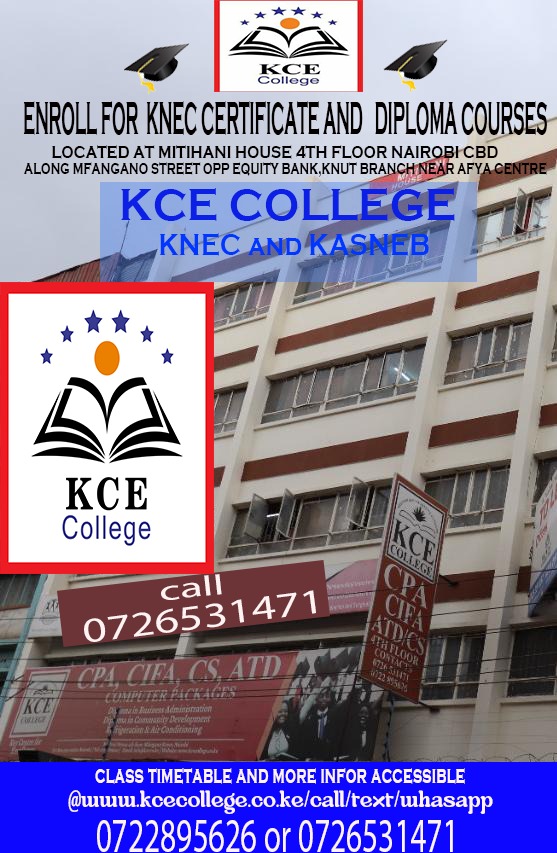Table of Contents
PAPER 17: PUBLIC POLICY AND ADMINISTRATION
GENERAL OBJECTIVE
This paper is intended to equip the candidate with the knowledge, skills and attitudes that will enable them to manage organisations and people in addition to effectively formulating, interpreting, evaluating and implementing public policies.
LEARNING OUTCOMES
A candidate who passes this paper should be able to;
- Discuss the history, scope and environment of public administration
- Articulate the basic theories and concepts relevant to the field of public administration.
- Apply requisite knowledge to manage public sector organisations
- Apply relevant skills in policy-making processes in implementation
- Develop analytical and conceptual skills in critical evaluation of major policy issues
- Apply democratic principles of public participation in decision
CONTENT
Nature of public administration
- Concepts of public administration
- History of public administration
- Public administration versus management
- Relationship between public administration and politics
- Theoretical perspective of public administration
- Principles of public administration
- Challenges of traditional public administration in the public sector
- Leadership, integrity and national values in public service
Structure and organisation of government
- Structure of the national government
- Structure of the county government
- The three arms of government
- Separation of powers/checks and balances
- Independent Commissions and Offices
- Objects and principles of the devolved government
- Role of county executive
- Role of the county assembly
- The County Public Service Board
- County administration structures
- Inter-government relations
Role of Certified Secretaries in government
- Secretary to county public service board; appointment, qualification, roles, liabilities, removal and vacation of office
- Secretary to urban and cities boards; appointment, qualification, roles, liabilities, removal and vacation of office
- Secretary to government owned entities: appointment, qualification, roles, liabilities, removal and vacation of office
- Management of the political environment
The concept of public policy
- Definition of public policy
- Sources of public policy
- Typology of public policies
- Stages of a policy process in government and other public institutions
- Policy design formulation, implementation, monitoring and evaluation
- Benefits of public policy
Public policy making process and analysis
- Tools of public policy analysis
- Policy analysis models
- Stakeholders analysis (the political and ideological contexts)
- Research in public policy
- Data collection and analysis
The context of public policy
- Elements of the policy making process
- Actors in policy making
- Role of official (institutional) actors (executive, legislature, judiciary and administrators)
- Roles of non-official (non-institutional) actors (political parties, interest and pressure groups)
- Roles of private citizens
- Factors that affect policy implementation
Impact of public policy on development
- Linkage of public administration and public policy
- National development and National and County plans and policies
- Stakeholder’s involvement
- National and county development plans
- Characteristics of good/effective policies
- Challenges of public policy formulation and implementation
Role of policy in resources allocation
- Budgeting as a policy instrument
- Role of budgeting in governance
- Resources mobilisation, revenue and debt
- Allocation and utilisation of resources for delivery of goods and services (including public procurement management)
- The link between economic policy goals and public expenditure management
Government owned enterprises
- The nature of government owned enterprises
- Regulatory and legal environment of government owned enterprises
- Role of government owned enterprises in economic development
- Performance contracting in public service
- Social obligations of state owned enterprises
- Relationship between government owned enterprises and the national governments
- Privatisation
Public procurement and disposal procedures
- Meaning of public procurement and disposal
- Objectives of public procurement and disposal
- Legal and regulatory framework on public procurement and disposal
- Roles and responsibilities of procuring agencies
Public Private Partnerships
- Nature and types of public private partnerships
- Legal and regulatory framework on public private partnerships
- Process of public private partnerships
- Role of public private partnerships in economic development
- Public private partnerships versus procurement
Public participation in governance
- The concept of public participation
- Rationale for public participation
- Legal framework for public participation
- Principles of public participation
- Benefits of public participation in government decision making
- Challenges of public participation
Case studies in public administration and policy
Emerging issues and trends
Share through
